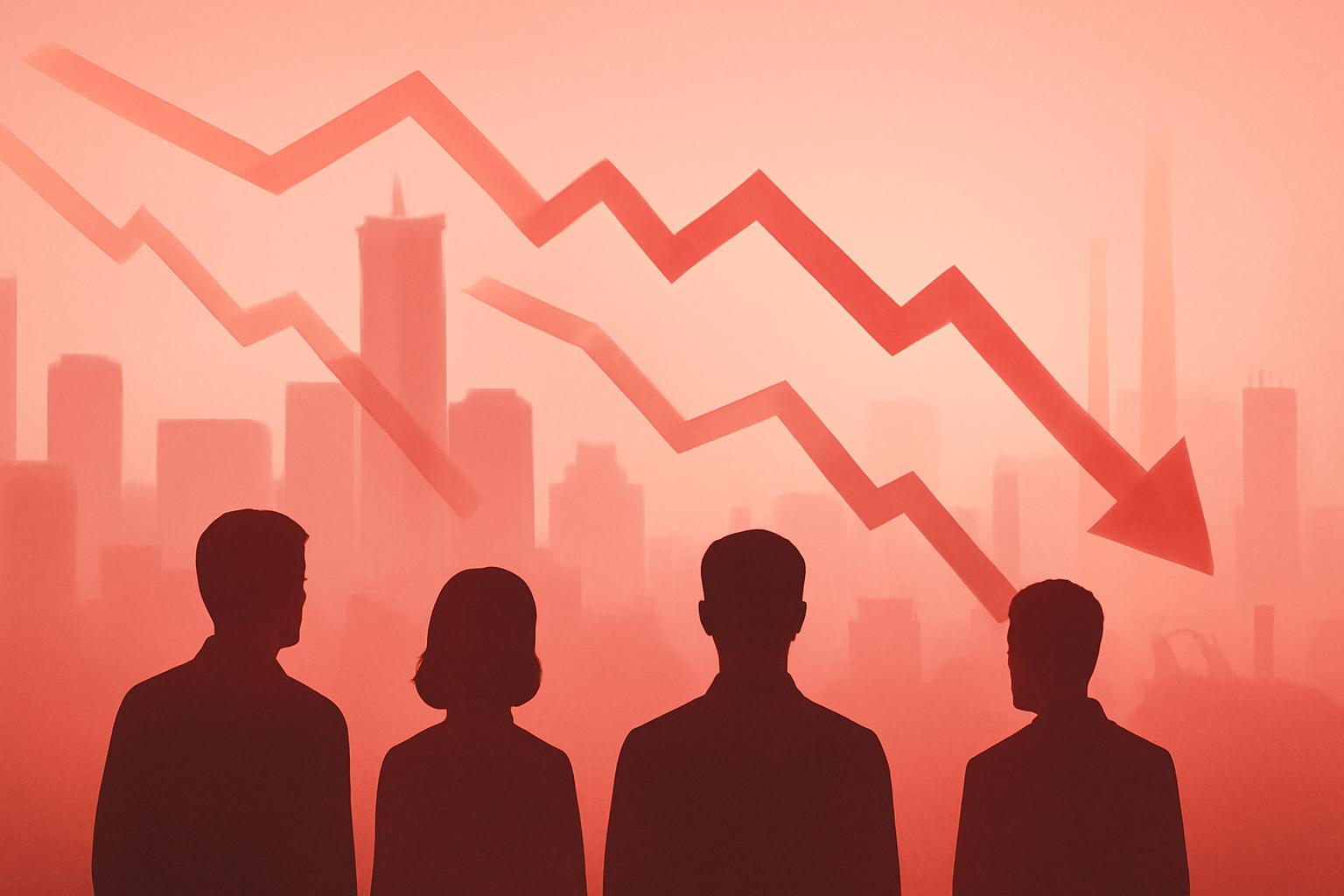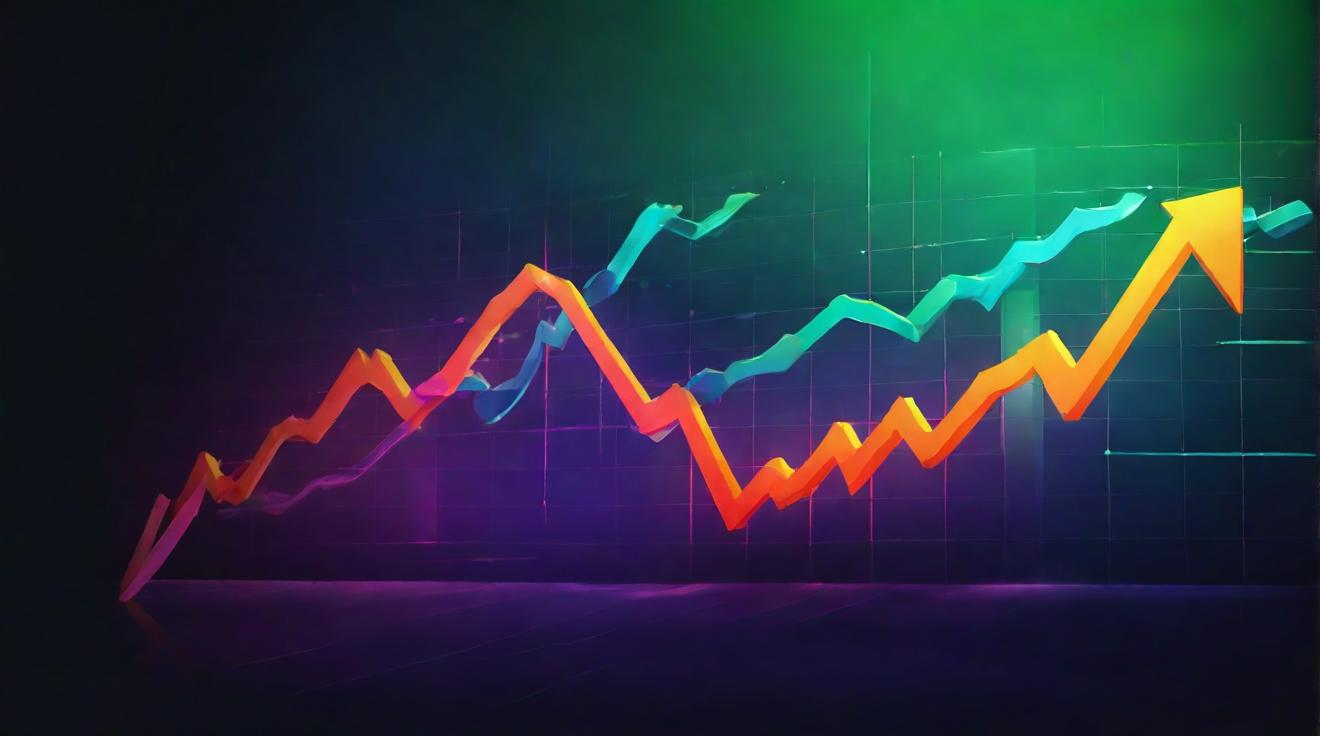China’s Economic Slowdown Deepens in August
China’s economy showed further signs of weakening in August as key indicators including retail sales, industrial output, and fixed-asset investment missed analyst expectations. Persistent weak domestic demand and Beijing’s efforts to reduce industrial overcapacity contributed to the subdued performance, while the real estate sector continued to deteriorate.
Retail Sales and Industrial Output Lag Expectations
According to data released by the National Bureau of Statistics (NBS), retail sales rose 3.4% year-over-year in August, falling short of the 3.9% growth forecast in a Reuters poll and down from July’s 3.7%. Industrial output growth slowed to 5.2%, marking its weakest pace since August 2024 and below the 5.7% recorded in July. Economists had anticipated industrial output to remain steady compared to the previous month.
Fixed-Asset Investment Growth Slows Sharply
Fixed-asset investment, measured on a year-to-date basis, expanded by just 0.5% through August, a marked deceleration from the 1.6% growth seen from January to July and below the 1.4% expected by economists. Real estate investment, a key drag on the economy, contracted 12.9% over the first eight months, underscoring ongoing challenges in the sector.
Investment in manufacturing and utilities sectors showed mixed performance, with manufacturing growing 5.1% and utilities—covering electricity, fuel, and water—rising 18.8%. Yuhan Zhang, principal economist at The Conference Board’s China Center, described manufacturing investment as exhibiting “modest and uneven growth,” influenced by weak private real estate activity and increased state-driven investment in infrastructure and high-tech industries.
Rising Unemployment and Deflationary Pressures
China’s urban survey unemployment rate ticked up to 5.3% in August from 5.2% in July, a rise the NBS attributed to the graduation season. Meanwhile, consumer prices declined 0.4% year-over-year, exceeding expectations for a milder drop, while producer prices remained in deflation for a third consecutive year. NBS spokesperson Fu Linghui highlighted uncertainties related to “imported inflation” driven by factors such as a weakening yuan and global commodity price fluctuations, alongside domestic policies aimed at curbing excessive competition among manufacturers.
Shifts in Consumption Patterns
Service consumption gained traction, particularly in travel, leisure, and transport sectors, signaling a gradual consumer shift toward services. Retail sales excluding automobiles grew 3.7% year-over-year in August, with rural consumption outpacing urban at 4.6%. Categories with the strongest sales growth included gold, silver, and jewelry (16.8%), sports and entertainment products (16.9%), and furniture (18.6%). Conversely, petroleum, tobacco, and alcohol-related products experienced the weakest demand.
Market Reaction and Outlook
The mainland’s CSI 300 index rose nearly 1% shortly after the data release, reflecting investor anticipation of the slowdown. Zhiwei Zhang, president and chief economist at Pinpoint Asset Management, noted that the deceleration was largely expected, as previous export boosts and fiscal stimulus effects have waned. While Beijing’s fiscal policy may become incrementally more supportive, he suggested a large-scale stimulus package is unlikely unless the economy risks missing its 5% growth target.
FinOracleAI — Market View
China’s August economic data indicates a clear deceleration in growth, driven by weak domestic consumption and a contracting real estate sector. The slower-than-expected industrial output and fixed-asset investment point to ongoing structural challenges. Risks include persistent deflationary pressures and external uncertainties such as imported inflation. Investors should monitor upcoming policy responses, particularly any signs of increased fiscal stimulus or monetary easing to stabilize growth.
Impact: negative













